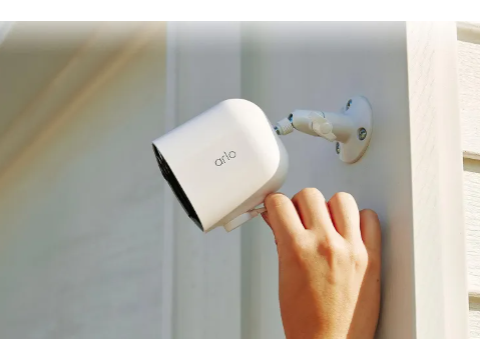How to Choose the Right Security Camera System for Your Home
Ensuring the safety of your property has become a priority for modern homeowners. A well-designed home security system not only safeguards your assets but also offers peace of mind by enabling remote monitoring of your home, no matter where you are.
Analog vs. IP Surveillance Systems
Analog Cameras
Analog cameras remain a popular option due to their affordability and reliability. They transmit video signals via coaxial cables, offering straightforward installation and low maintenance.
Advantages:
- Cost-effective solution for small to medium properties.
- Operates independently of the internet, reducing cybersecurity risks.
Disadvantages:
- Lower image quality compared to digital solutions.
- Limited transmission range and scalability.
IP Cameras
IP (Internet Protocol) cameras represent the next generation of surveillance technology, providing:
- High-definition video with resolutions up to 4K.
- Smart analytics, including facial recognition and license plate detection.
- Power-over-Ethernet (PoE) capabilities for simplified cabling.
Best for:
- Remote monitoring via the internet.
- Properties requiring advanced image quality and scalable systems.
Autonomous vs. Internet-Connected Surveillance
Autonomous Security Cameras
Ideal for locations without access to power or internet, autonomous cameras feature:
- Battery operation with solar charging options.
- Motion-activated recording to save energy and storage.
- Local or cloud-based storage options.
Considerations:
While convenient, autonomous systems may face limitations in power capacity and low-light functionality.
Internet-Connected Cameras
For homeowners needing real-time updates, internet-connected cameras offer:
- Live streaming from anywhere via mobile devices.
- Advanced AI analytics for detecting unusual activity.
Requirements:
- Reliable internet connectivity with sufficient bandwidth.
- Secure data transmission protocols to prevent unauthorized access.
Key Factors When Choosing a Home Surveillance System
Property Size and Layout
- Small yards: 2-4 cameras.
- Large estates: Comprehensive systems with multiple cameras.
Environmental Conditions
- Outdoor cameras must be weatherproof and durable.
Image Quality Needs
- Opt for HD or 4K cameras for facial recognition and license plate reading.
Installation and Maintenance
Proper installation ensures maximum effectiveness:
- Strategically position cameras to eliminate blind spots.
- Protect cables from tampering and weather damage.
Maintenance Checklist:
- Regularly clean camera lenses.
- Check connections and secure mounting hardware.
- Update firmware to enhance functionality and security.
Conclusion
The ideal home security camera system depends on your property size, budget, and desired features:
- Analog systems: Affordable and reliable.
- IP systems: High-quality, scalable, and feature-rich.
- Autonomous cameras: Best for remote locations.
- Internet-connected systems: Perfect for real-time monitoring.
Investing in the right system ensures long-term security and peace of mind for your home. Choose wisely and protect what matters most.

